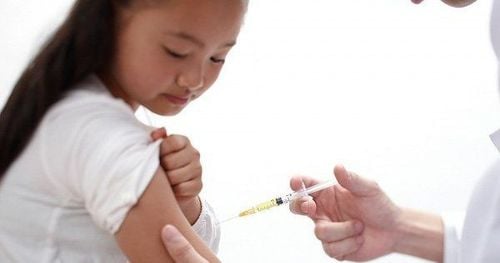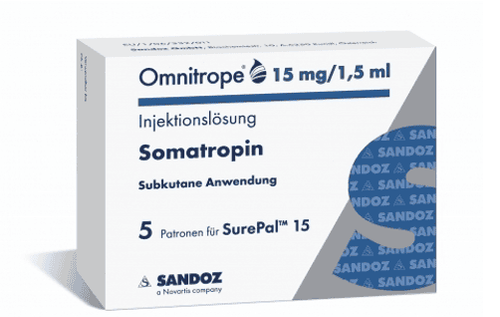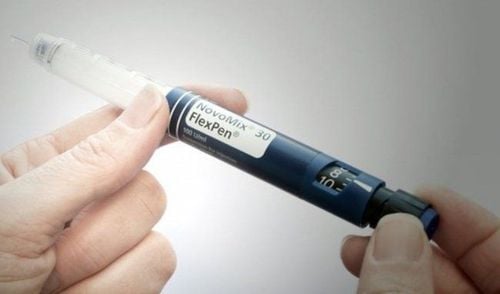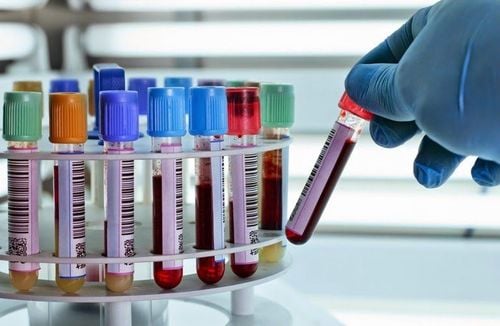This is an automatically translated article.
The first use of human growth hormone to treat disease was 45 years ago. Abuse of growth stimulants as a hormone to increase height or to increase muscle strength is increasingly common but always contains many unpredictable dangers.
1. What is Human Growth Hormone?
Human Growth Hormone (GH) is a substance that regulates the body's growth and metabolism. GH is produced by the pituitary gland, located at the base of the brain. The effects of growth hormone are to help children grow taller (also known as linear growth), increase muscle mass, and reduce body fat. In both children and adults, GH helps control the body's metabolism - the process by which cells convert food into energy and make other substances needed by the body.
If children or adults have too much or too little GH, they can all have health problems. Growth hormone deficiency (too little GH) can be treated with synthetic growth hormone injections. Sometimes, GH is also used illegally for non-medical purposes, i.e. abused to achieve illegal physical fitness goals.
2. When is growth hormone therapy used?
Health organizations around the world have unanimously approved the treatment of injectable growth hormone in the following specific conditions:
In children, injections of growth hormone are used to treat :
Lack of growth hormone; Growth retardation causes short stature (shorter than children of the same age), such as chronic kidney disease, Turner syndrome, and Prader-Willi syndrome. In adults, growth hormone injections are used to treat:
Growth hormone deficiency from childhood Loss of muscle tissue due to HIV infection Short bowel syndrome In addition to the above medical indications, self-administered stimulant injections Growth without the advice of endocrinologists is considered abusive and can be prosecuted in violation cases.

3. How is growth hormone abused?
Sometimes the average person can illegally use growth hormone to prevent or reverse the effects of aging or to improve athletic performance.
Some athletes believe that taking growth stimulants, even in combination with steroids, will quickly achieve the desired results in their efforts to build muscle, increase strength, and reduce body fat. .
Besides, many athletes also use insulin to increase muscle effect when injecting growth hormone even though they know that this form is very dangerous because it will lower blood sugar, especially when exercising. strength.
4. The incalculable dangers of self-injection of growth stimulants
Patients are always at risk of experiencing side effects when injecting growth hormone even though they strictly follow the endocrinologist's instructions and are regularly monitored, evaluated for effectiveness, and adjusted the dose. In cases of self-injection of growth stimulants, these risks can increase many times, in terms of frequency as well as the degree of incidence.
Side effects of short-term use of growth stimulants include joint and muscle pain, fluid retention, and joint swelling. When used for a long time, growth stimulants will cause diabetes, carpal tunnel syndrome, chronic joint and muscle pain, high blood pressure...
If growth hormone is injected with a shared needle, everyone may be exposed to HIV, AIDS or hepatitis as well as other blood-borne diseases. Long-term use of high doses of growth hormone can promote heart disease or the formation of new malignancies, or trigger cancer cells to return that have already been treated.
Children who receive hormone injections to increase height not as prescribed may have early puberty. The child's growth rate will be faster than that of peers of the same age, but the growth plate also closes earlier, so the adult height is also faster. did not improve compared to predictions. However, these children still have to face chronic bone and joint diseases in the future, such as knee pain, hip pain, scoliosis, limp gait... which are difficult to adjust.
In the illegal market, growth hormone that is traded may contain unknown and potentially harmful ingredients. For example, if human tissue-derived growth hormone is taken, the user is at risk of developing a fatal brain damage known as Creutzfeldt-Jakob disease, a condition similar to mad cow disease.
In summary, synthetic growth hormone is considered a safe and effective therapy when used exactly as prescribed by a doctor. Arbitrarily injecting growth hormone as a hormone to increase height in young children or to increase performance in athletes is considered abusive or illegal and can cause serious side effects. Meanwhile, a healthy adult can completely improve his health and fitness with diet and exercise. If parents are worried about their child's growth retardation, suspecting a growth hormone deficiency, they need to take their child to a doctor for examination.
Please dial HOTLINE for more information or register for an appointment HERE. Download MyVinmec app to make appointments faster and to manage your bookings easily.
Note: This article is part of the Vinmec International General Hospital System's Awareness Program on Growth Retardation, with the support of Novo Nordisk













